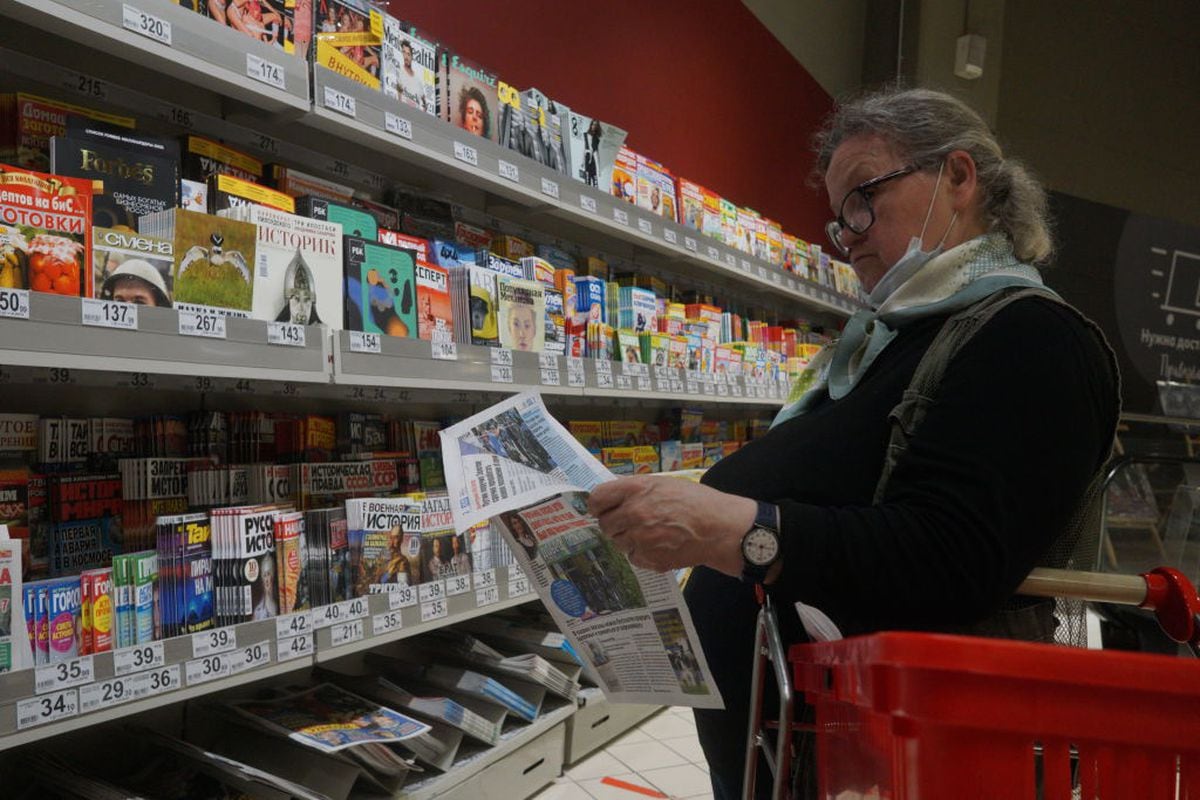Social media has been in the Kremlin's crosshairs for a long time, and criticism of the Ukraine invasion has culminated in its blockade of the country.
The Russian telecommunications regulator, Roskomnadzor, banned access to Twitter and Facebook, as well as several Western media, on Friday for "systematic dissemination of disinformation" of what the Kremlin calls "special operation for the protection of the Donetsk republics." and Luhansk”.
In parallel, the two chambers of the Russian parliament approved this Friday a bill that provides prison sentences of up to 15 years for disseminating information about the war that does not conform to what the Kremlin considers true.
In short, an information blackout at a decisive moment for the nation.
More information
Follow the latest from the war in Ukraine live
The consequences of this law have been seen immediately.
"With great regret, we have decided to suspend our information activity inside Russia," announced the editor of the Bloomberg agency, John Micklethwait, this Friday, hours after the decision of the Russian parliament.
“Changes in the penal code, which seem designed to turn any independent reporter into a criminal by association alone, make it impossible to maintain any semblance of normal journalism within the country,” he added.
The American television network CNN has also announced that it is suspending its broadcasts in the country "while it evaluates the situation."
Several Anglo-Saxon journalists announced their departure on Twitter before the big blackout.
One of the media affected is the British
BBC
.
The Russian authorities announced this Friday the blockade of both the BBC, the German
Deutsche Welle
, the American
Voice of America
and
Radio Free Europe , and the
Meduza
newspaper
, founded by Russian journalists in Latvia.
Unlike what happened with social networks, Roskomandzor did not justify its ban in Russia by vetoing Kremlin channels in the West, but by an alleged "systematic spread of disinformation."
The media refused to delete its content and its dissemination was blocked in the country.
In addition, the
BBC
also decided that its correspondents in Russia stop reporting for the rest of the world for now because the new legislation "appears to criminalize independent journalism."
"It leaves us no choice as we assess the full implications of this unwelcome development (of events)," said CEO Tim Davie.
"The safety of our staff is the priority and we are not prepared to expose them to the risk of criminal prosecution just for doing their jobs," lamented the manager.
However, the
BBC
will maintain its version in Russian on social networks, to which the Kremlin tries to prevent access to its citizens by banning numerous VPNs, extensions that allow the entry point of the phone or computer to be placed in other countries.
In addition to foreign channels, other Russian media have also fallen this week.
The only remaining independent television,
Dozhd
, closed its broadcast with
Swan Lake
, the
ballet
that was repeated over and over again on television during the failed coup of the communist leadership in 1991. The channel maintains its activity, from moment on YouTube.
And another medium that has disappeared due to this wave of censorship has been
Echo of Moscow
, a radio station founded in 1990 that only stopped broadcasting that same day.
Both its broadcasts on the airwaves and its portal have closed despite the fact that not only critical voices participated there, but also supporters of the Government.
Its board of directors decided on Friday the total liquidation of the group.
Throughout this year the threats were repeated and this Friday they were fulfilled.
In addition, Twitter and Facebook had this week blocked the Kremlin channels
Russia Today
and
Sputnik .
, thus joining the initiative of the European Union to ban both media in its territory.
More than a year ago, Vladimir Putin charged against social networks because "in certain fields," he said, "they are competing with the states and their audience reaches millions and millions of users."
The Russian president, who claims not to have any account on social networks, referred to the influence of these platforms in US politics.
Putin made these statements 10 days after the arrest of the opponent Alexei Navalni and the protests that it provoked.
In the following months, the activist and his team were declared extremists, and fines came one after another to the offices of Facebook, Twitter and Google, which owns YouTube, for failing to delete "inappropriate content" and "discriminating against Russian media." ”.
Both WhatsApp and Instagram are part of Meta, formerly known as Facebook.
The chat works normally, but the photo portal, very popular in Russia, was slowed down at the start of the war, as was the case with Twitter as a result of Navalny's protests.
Many users reported that private chats no longer worked or that it took a long time to download images.
Follow all the international information on
and
, or in
our weekly newsletter
.

